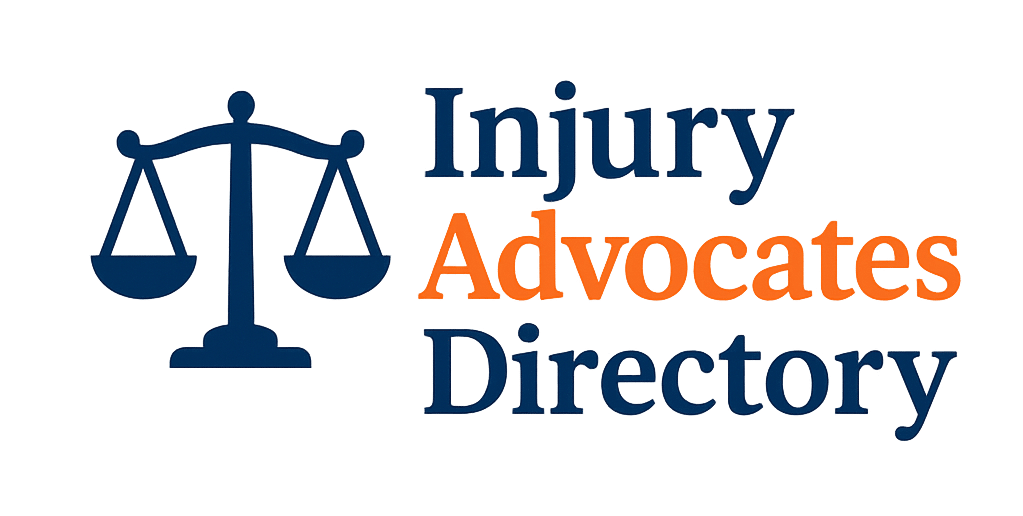Witness testimony plays a vital role in personal injury cases, offering essential support to claims by providing firsthand accounts and expert opinions. This article explores the various aspects of witness testimony, highlighting its importance and the challenges involved.
Understanding the nuances of testimony can make a difference in the outcome of personal injury claims. In this article, we will examine different types of witnesses, their credibility, and the impact they have on legal proceedings.
Why is witness testimony important in personal injury cases?
Witness testimony is crucial as it enhances the credibility of personal injury claims. It provides objective support that validates accounts and fills evidentiary gaps. This type of testimony can establish fault, clarify circumstances, and reinforce the narrative of the injured party.
In many cases, the testimony serves as a bridge between the evidence and the claims being made. When medical records do not fully capture the extent of injuries or the circumstances of an accident, witness accounts can provide the necessary context and details. Securing reliable witness statements is, therefore, paramount for a successful claim.
Moreover, witness testimony can significantly influence jury decisions. Positive accounts can sway jurors towards favoring the injured party, potentially resulting in enhanced compensation for injuries. A strong witness statement can also counter any false claims made by the opposing side.
What are the different types of witnesses in personal injury cases?
In personal injury cases, various types of witnesses can present valuable insights:
- Eyewitnesses: These witnesses saw the incident occur and can provide first-hand accounts of what happened.
- Expert witnesses: Professionals such as medical experts or accident reconstruction specialists who can explain technical aspects of the case.
- Character witnesses: Individuals who can testify about the injured party's character and how the injury has affected their life.
- Medical professionals: Doctors and therapists who can provide details about the nature of the injuries and the expected recovery process.
- Economic experts: Specialists who can quantify the financial impact of the injuries and related challenges.
Each type of witness plays a unique role in establishing crucial facts, supporting claims, and strengthening the overall case. For instance, while eyewitnesses provide direct observations, expert witnesses can offer interpretations based on their specialized knowledge.
How does witness testimony strengthen a personal injury claim?
When properly presented, witness testimony can dramatically enhance a personal injury claim. It helps affirm the facts surrounding the incident, providing clarity and support to the injured party's account. The impact of eyewitness testimony in personal injury cases cannot be understated, as it often serves to validate claims made in court.
Moreover, witness statements can clarify the emotional and psychological impact of injuries on the victim, illustrating the wider consequences of the accident. This is particularly important in cases where compensation is sought for pain and suffering, as these elements can be subjective and difficult to quantify.
Additionally, witness testimony allows for a multi-faceted view of the incident, which can counter any discrepancies or false claims from the opposing party. By presenting varied perspectives, a personal injury attorney can effectively advocate for their client and bolster the overall narrative.
What makes witness testimony credible in legal proceedings?
The credibility of witness testimony is essential for it to be impactful in personal injury cases. Several factors influence this credibility:
- Clarity: Clear and concise statements are more likely to be believed and understood.
- Neutrality: Witnesses who do not have a personal stake in the case tend to be viewed as more credible.
- Observational skills: The ability of a witness to recall details accurately enhances the value of their testimony.
- Consistency: Consistent statements, regardless of who is asking the questions, bolster credibility.
Witnesses must also be prepared for cross-examination, which can challenge their reliability. Thus, working with an attorney can help witnesses prepare adequately, ensuring their testimony holds up under scrutiny.
What challenges are commonly faced with witness testimony?
Gathering witness testimony is not without its challenges. One common issue is the fading memory of witnesses over time, which can lead to inaccuracies in recollection. Challenges in gathering witness testimony for personal injury claims can impede the effectiveness of these statements in court.
Additionally, potential witnesses may be reluctant to come forward due to fear of involvement in legal proceedings or social pressure. This reluctance can hinder the collection of valuable testimony that could support a claim. Therefore, it’s crucial to identify and secure witness statements as soon as possible after an incident.
Conflicting accounts can also arise, especially if multiple witnesses have different perspectives on the same events. Addressing these discrepancies early on helps to solidify the narrative and avoid complications during the trial.
How can a personal injury attorney assist with witness testimony?
A personal injury attorney plays a critical role in managing and utilizing witness testimony effectively. They can assist in identifying potential witnesses and guiding them through the process of providing statements. Their expertise ensures that testimonies are collected and documented properly.
Moreover, attorneys prepare witnesses for court, helping them understand what to expect during testimony. This preparation can significantly enhance the credibility of the statements provided, ensuring that the witness presents their account confidently and clearly.
A skilled attorney also knows how to leverage witness testimony strategically within the broader context of the case. By integrating witness accounts into the overall narrative, they can strengthen the claim and increase the likelihood of a favorable outcome.
What should you do if you witness an accident?
If you find yourself as a witness to an accident, your role can be crucial in supporting a personal injury claim. Here are steps to take:
- Stay calm: Take a moment to collect your thoughts before intervening.
- Document what you see: Write down details about the incident, including time, location, and specifics of what you witnessed.
- Contact authorities: Reporting the incident to the police can formalize the situation and ensure it is documented.
- Gather information: Collect contact details from those involved as well as other witnesses.
- Consider legal consultation: If you are unsure about your role, it may be beneficial to seek legal advice.
Your testimony could be critical in establishing the facts of the case and helping those affected receive fair compensation. Remember, your detailed account can make a significant difference.
Related questions about witness testimony in personal injury cases
What is the role of expert witnesses in personal injury cases?
Expert witnesses bring specialized knowledge to personal injury cases, helping to clarify complex issues that laypersons may not understand. These professionals can include medical doctors, engineers, or psychologists who explain the significance of the injuries or the circumstances of the accident.
For example, a medical expert might discuss the long-term ramifications of a specific injury, while an accident reconstruction specialist can illustrate how an accident occurred based on physical evidence. Their insights lend credibility and help the jury understand critical aspects of the case.
What is the importance of witness testimony?
Witness testimony is vital as it serves as objective evidence to back up claims being made in court. It can validate the injured party’s narrative, clarify the events that led to the injury, and offer insights that are not captured in physical evidence alone.
Furthermore, credible testimonies can significantly influence jury decisions, often leading to more favorable outcomes in terms of compensation. When strong witness accounts are presented, they often establish a compelling story that resonates with jurors, making the case more persuasive.
What is the testimony of an injured witness?
The testimony of an injured witness refers to the account provided by the person who sustained the injuries. This testimony is particularly important as it conveys their experiences, feelings, and the impact the injury has had on their life.
This type of testimony can include details about the accident, the immediate consequences of the injuries, and the long-term effects on their quality of life. It provides a personal perspective that can be powerful in persuading jurors to empathize with the injured party.
What is the burden of proof for personal injury?
The burden of proof in personal injury cases typically lies with the plaintiff, who must establish that the defendant was negligent and that this negligence caused their injuries. This involves presenting sufficient evidence, including witness testimonies, to support their claim.
The standard of proof is generally a "preponderance of the evidence," meaning that the evidence must show that it is more likely than not that the defendant's actions caused the harm. Witness testimony can significantly bolster a plaintiff's case, providing essential support to the claims being made.

